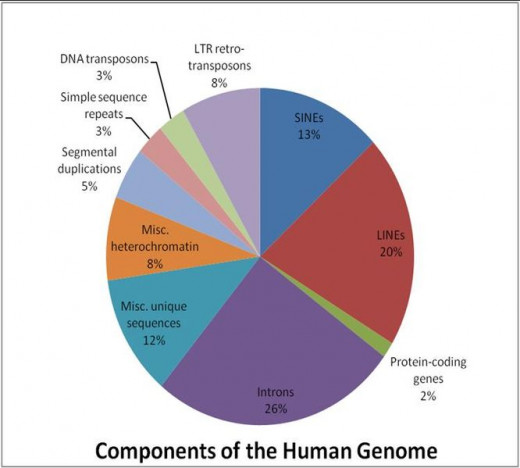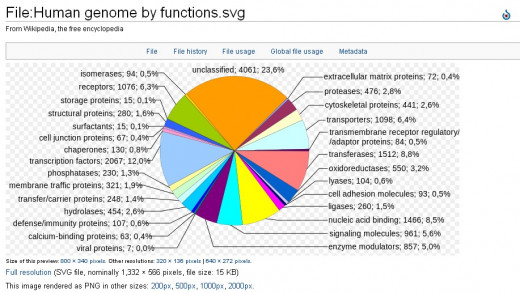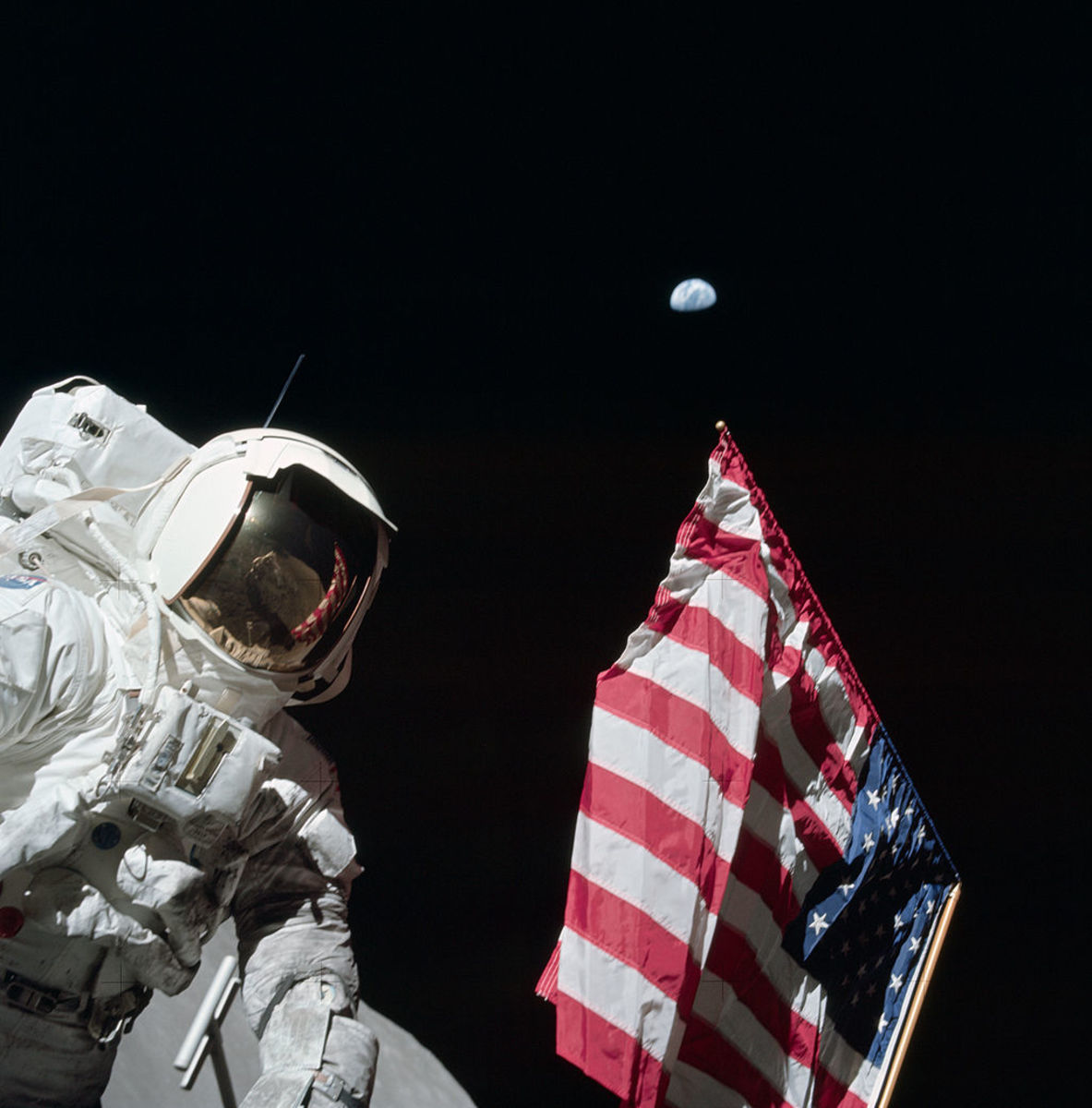The Largest Hard Drive On Earth: The Human Genome

What are some of the largest computers?
What is the largest hard drive on earth that you know about? Would you express it in Terabytes (1000G), petabytes (10 to the 15th power), or perhaps, pebibytes (1024 to the 5th power)?
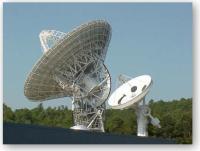
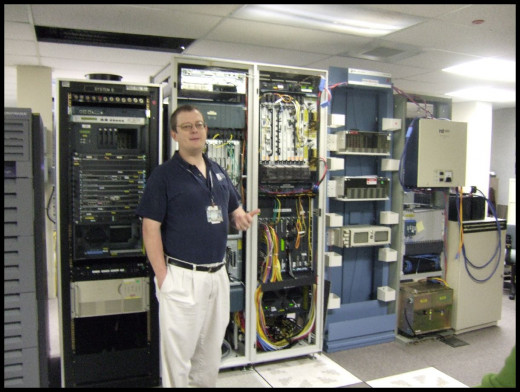
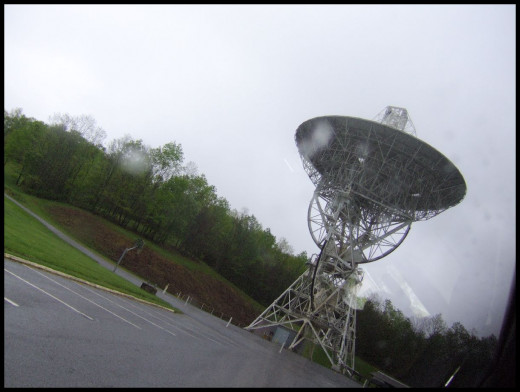

Super Computers
I remember my first computer. This will age me quite a bit here, but the entire capacity of the hard drive was one half of one megabyte. Yes, you heard me right. My first system had a total hard drive capacity of 500mb! Some of my picture folders are more than that now.
When we think of some of the super computers out there, it is almost difficult to comprehend how much information they can process and hold. It reminds me of a trip I took once to the Pisgah Astronomical Research Institute. If you are interested at all in astronomy or space science, this is a must-see if you are in the area.
They have several radio telescopes at the institution. It is located in Rosman, NC and is situated in a natural “bowl” setting. It gives the whole area a unique natural muffled acoustic sound. The day we visited was sort of gloomy, drizzling rain and low hanging clouds. It was beautiful with all the fall colors against the mountains rising around. When we made the last turn, it looked (and sounded) like something out of X Files. It is really a unique place.
This institution was one of the major listening stations on the East Coast during the Cold War. Underground, there are tunnels full of bunkers and back ways under the radio telescopes. There is this super computer that we walked through, rows and rows of processors. It was a sight to behold, unbelievable, the size and mass of this thing.
And yet, our own bodies contain more than these super computers could ever hold.
How, you might ask? And what are we talking about exactly?
DNA: It's What makes You Who You Are

DNA and The Human Genome
Everyone has heard of DNA. It is what makes you, you. Deoxyribonucleic acid. Strings of genetic information in a double helix that gives detailed instructions as to how we look, the kind of person we are, our dominant and recessive features, it even contains the information on conditions we carry or could develop. It is basically the blueprint for who we are individually.
Another schoolmate and I did a science project two years in a row on DNA in school. We won second place that year. The following year, we did a follow up, more in-depth study of the DNA with several generation results that we graphed and that year, we won the County Science Fair. It was one of the most fascinating subjects I ever delved into. To this day, I still notice certain dominant and recessive features of genetics.
DNA is composed of 4 different bases: Adenine (A), Thymine (T), Cytosine (C), and Guanine (G). These bases are always paired in such a way that Adenine connects to Thymine, and Cytosine connects to Guanine. These pairings produce 4 different base pair possibilities: A-T, T-A, G-C, and C-G. The haploid human genome (containing only 1 copy of each chromosome) consists of roughly 3 billion of these base pairs grouped into 23 chromosomes. A human being inherits two sets of genomes (one from each parent), and thus two sets of chromosomes, for a total of 46 chromosomes. This is referred to as the diploid genome, which contains about 6×10^9 base pairs. This genetic information is contained in the nucleus of the cell and in a small DNA molecule within the mitochondrion.


Code For Life: The Human Genome
"All Its Parts Are Down In Writing..."
I have heard it expressed that if you were to take the genetic information held in the DNA and record it down in books, if each page contained 1,000 base pairs, and each book contained more than 1,000 pages, then 3,300 such books would be needed in order to store the complete genome. Now, that's a lot to comprehend. So, let's break it down a little more.
That means that if there was a library that contained books that each held 500 pages, and each page recorded that same number, 1,000 base pairs, then there would have to be 6,600 books!
But our question here at the beginning was regarding computer storage. So let's compare the human body to a computer right now.
If expressed in units of computer data storage, 3.3 billion base-pairs recorded at 2 bits per pair would equal 786 megabytes of raw data. This is comparable to a fully data loaded CD.
So, why don't we put this in terms we can more readily understand. If we think of storing information, the first thing that comes to our mind is a computer, right?
In order for it to be comparative to data storage in a computer, we must be able to translate these four base pair combinations into binary format (0 and 1). These are grouped together to form a larger unit, and you can think of the smallest being a 'byte' represented by eight bits. If all four base pairs were represented by 8 bits, then we could represent each base pair by 2 bits, yielding 4 combinations (00, 01, 10, 11).
With this understanding, we could apply this formula:
6×10^9 base pairs/diploid genome x 1 byte/4 base pairs = 1.5×10^9 bytes or 1.5 Gigabytes, about 2 CDs worth of space! Or small enough to fit 3 separate genomes on a standard DVD.
This leads us to an interesting question. If the above calculations are true, then how much information is stored in the entire human body? The accepted estimate of human body cells is around 100 trillion cells. If we substitute the values we just learned, 1.5G for each diploid cell, then we could express the data storage in the human body using this equation:
1.5G x 100 trillion cells = 150 trillion GB! That's a lot of information!
What Do You Think?
Do you think they will ever be able to build a super computer that could hold as much information as the human body holds?
Answers Always Lead To More Questions
Having figured out this information can lead to all kinds of other interesting questions. For instance, have you ever wondered about the data capacity of our biological organism? Or maybe you have pondered what the rate of data transmission is during cell division? Maybe we should think about the rate of data transmission during gamete fusion? What amount of data is destroyed daily by apoptosis? What amount of data is created daily? How does this compare to the rate of data transfer via an optical fiber?
This information leads us not to simply answers, but invites us to explore our boundaries even more.
References
- http://web.ornl.gov/sci/techresources/Human_Genome/home.shtml
- http://www.expressnews.com/news/local/article/Human-genome-map-is-done-but-where-will-it-lead-4665152.php
- http://www.the-scientist.com/?articles.view/articleNo/32494/title/DNA-Data-Storage/
Copyright 2013 FVH - All Rights Reserved
In Layman's Terms, What Is DNA?
DNA Fingerprinting
Five Must-Read Articles on DNA
- HowStuffWorks: How DNA Works
DNA contains genetic material that gets passed down to each successive generation. Learn about DNA and find out what information each strand of DNA contains. - DNA at 60: Still Much to Learn: Scientific American
On the diamond jubilee of the double helix, we should admit that we don't fully understand how evolution works at the molecular level - Solving DNA puzzles is overwhelming computer systems, researchers warn
Scientists in the fast-growing field of computational genomics are getting lots of data but lack the computer power needed to analyze it quickly. - DNA May Hold Key to Compact Information Processing and Data Storage
The DNA molecule -- nature’s premier data storage material -- may hold the key for the information technology industry as it faces demands for more compact data processing and storage circuitry … - Spread of DNA databases sparks ethical concerns-The Korea Herald
LONDON (AP) ― You can ditch your computer and leave your cellphone at home, but you can’t escape your DNA.It belongs u...

